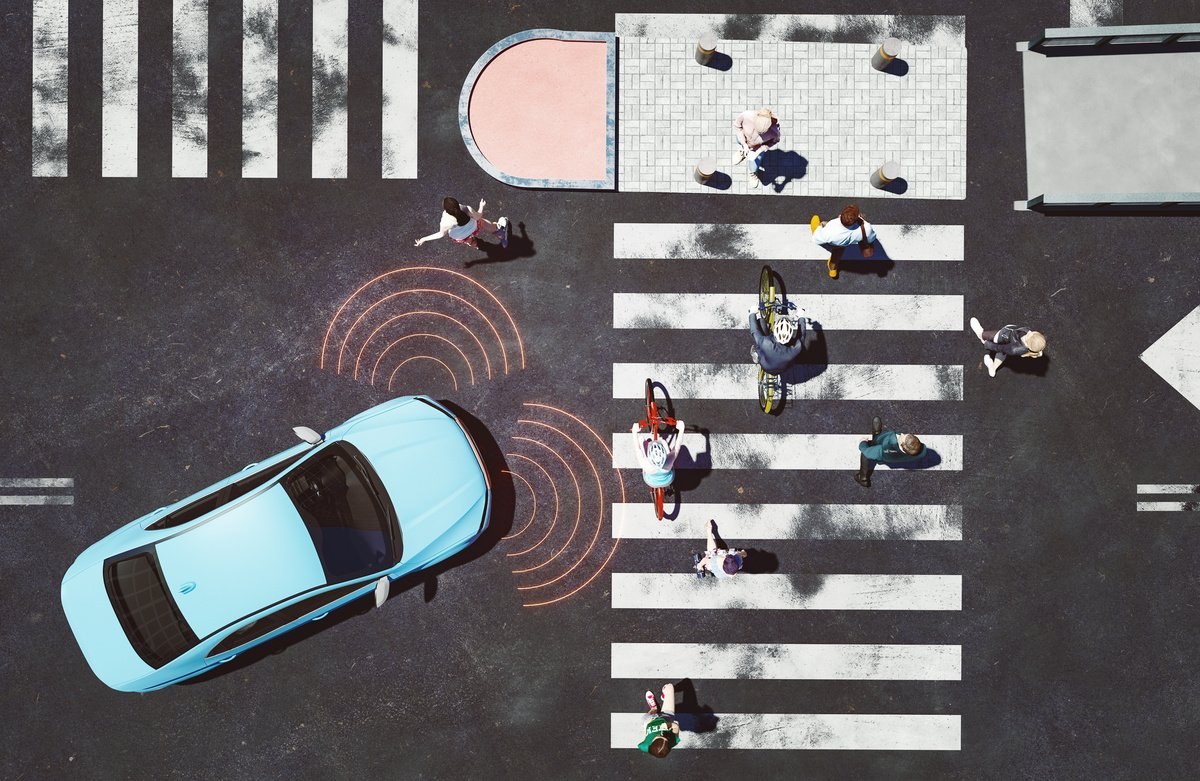
The road to tomorrow: European consumers less optimistic about AI’s impact on the driving experience
In recent years, an unprecedented surge in the development of artificial intelligence (AI) and its ability to revolutionize daily life has been at the center of public conversation. AI continues to transform the way we interact with technology and perceive the future. But do consumers think AI will make things better or worse? And what do they think about the impact of AI on driving vehicles?
According to a recent YouGov Surveys: Serviced poll across 18 international markets, more than two out of five global consumers believe that AI will make the experience of diagnosing medical conditions (43%) and building a travel itinerary (42%) better in the next five years. While slightly more than a third of global respondents say the same about booking or rebooking air travel (36%), generating or summarizing news content (35%), and providing customer service (34%), just three out of ten respondents feel the same way when it comes to driving a car or other vehicle (30%). That’s despite – or perhaps because – the prospect of driverless cars being on the horizon for some time.
A closer look at those consumers’ opinions on the impact AI will have on driving a car over the next five years, by region, reveals some interesting differences.
In Hong Kong and the UAE there is a striking optimism. Around half of respondents in both markets (51% and 50% respectively) believe that AI will significantly enhance the driving experience.
Conversely, markets like France, Canada, the United States and Great Britain show more skepticism. In Great Britain, only 20% of respondents believe AI will make things better, while two-fifths (41%) expect it to have a negative impact.
Two out of five Americans say AI will make the driving experience worse (40%) while another 29% say they don’t know if AI will make things better, worse or have no impact. Just slightly more than an eighth of Americans see AI having a positive impact in this activity (15%).
Consumers in the Nordic countries also share similar sentiments with around 29% of Swedes and 33% of Danes not sure about AI's impact on driving. Consumers in Denmark are more likely to say machine learning will enhance the driving experience (25%) than they are to say it will make things worse (20%). However, the opposite is true among the Swedes where 23% pick ‘better’ and 29% pick ‘worse’.
Overall, the perception of AI's impact on driving varies significantly across international markets. While some regions are enthusiastic about AI's potential to revolutionize the activity, others remain cautious or even apprehensive about its role in shaping the future.
Explore our living data – for free
Try a subscription-free data snapshot of your brand performance, sector trends or audience profile, with a one-time deep dive into YouGov's flagship consumer intelligence and brand tracking products. Get your tailor-made snapshot here.
Discover more Automotive content here
Want to run your own research? Run a survey now
Make smarter business decisions with better intelligence. Understand exactly what your audience is thinking by leveraging our panel of 20 million+ members. Speak with us today.
Methodology: YouGov Surveys: Serviced provide quick survey results from nationally representative or targeted audiences in multiple markets. The data is based on surveys of adults aged 18+ years in 18 markets with sample sizes varying between 437 and 2,045 for each market. All surveys were conducted online in June 2023. Data from each market uses a nationally representative sample apart from Mexico and India, which use urban representative samples, and Indonesia and Hong Kong, which use online representative samples. Learn more about YouGov Surveys: Serviced.